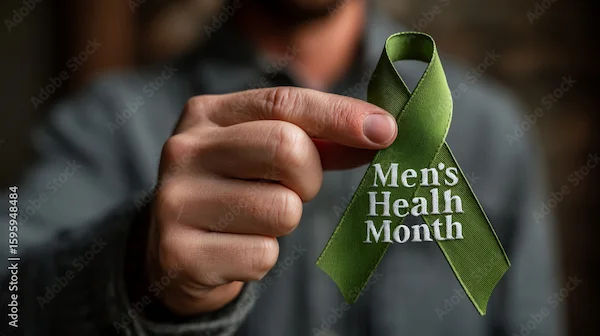Gamophobia: Understanding and Overcoming the Fear of Marriage
Discover gamophobia, the fear of marriage—its causes, symptoms, and impact on relationships. Learn effective treatments, self-help strategies, and ways to overcome it for a healthier, fulfilling life.

Written by Dr. Rohinipriyanka Pondugula
Reviewed by Dr. Mohammed Kamran MBBS, FIDM
Last updated on 13th Jan, 2026

Introduction
The idea of marriage brings joy and excitement to many. But for some, the very thought of walking down the aisle, saying "I do," or even being in a serious, committed relationship triggers intense, overwhelming fear and anxiety. This isn't just about having doubts or wanting to take things slow; it's a deep-seated, often irrational dread known as gamophobia—the fear of marriage. This phobia can feel isolating and confusing, impacting not just your love life but your overall mental well-being. You might wonder if you're broken or destined to be alone, but it's crucial to know that you're not alone, and this is a treatable condition. This comprehensive guide will help you understand what gamophobia is, what causes it, how to recognise its signs, and, most importantly, the practical steps you can take to overcome it and build the healthy, fulfilling relationships you deserve.
What is Gamophobia? More Than Just Cold Feet
Gamophobia is classified as a specific phobia, an anxiety disorder characterised by a persistent, irrational fear of a specific object, situation, or activity—in this case, marriage or commitment. It goes far beyond the typical "cold feet" someone might feel before a wedding. For someone with gamophobia, the concept of marriage can trigger full-blown panic attacks, extreme avoidance behaviour, and significant distress that interferes with their daily life and happiness.
Gamophobia vs. General Commitment Issues
It's important to distinguish between the two. General commitment issues might involve a reluctance to define a relationship or hesitancy about moving in together. Gamophobia, however, is more severe and focused. The fear is specifically tied to the institution of marriage itself. Someone with commitment issues might eventually warm up to the idea, while a person with gamophobia experiences a visceral, anxiety-driven reaction to the very symbol of matrimony, often rooted in deeper psychological triggers.
The Psychological Impact of a Marriage Phobia
Living with an untreated fear of marriage can lead to profound loneliness, low self-esteem, and depression. Individuals may sabotage otherwise happy relationships the moment they sense things are getting serious. They might avoid dating altogether to preemptively shield themselves from the anxiety, leading to social isolation and a narrative of self-doubt, reinforcing the belief that they are unworthy of or incapable of love.
Health topic carousel:
Doctor's speciality: Psychologist or Psychiatrist
Text: Consult a Psychologist or Psychiatrist for the best advice
Recognising the Signs: Symptoms of Gamophobia
The symptoms of gamophobia can manifest emotionally, cognitively, and physically, especially when confronted with the prospect of marriage.
Emotional and Cognitive Symptoms
Intense, Immediate Anxiety: Feeling overwhelming dread or panic at the thought of your own or someone else's wedding.
Catastrophic Thinking: Imagining the worst-case scenarios of marriage—e.g., inevitable divorce, losing your identity, being trapped or unhappy.
Avoidance: Actively avoiding serious relationships, proposals, wedding venues, or conversations about the future.
Feelings of Detachment: Feeling numb or disconnected when a partner expresses their desire to get married.
Irrational Beliefs: Holding onto absolutist beliefs like "All marriages fail" or "Marriage means the end of freedom."
Physical Symptoms of Anxiety and Panic
When faced with their trigger, individuals may experience:
Panic attacks
Rapid heartbeat (tachycardia)
Shortness of breath or hyperventilation
Trembling or shaking
Sweating excessively
Nausea or dizziness
These physical symptoms of anxiety are the body's fight-or-flight response kicking in, perceiving marriage as a direct threat.
Why Does It Happen? Root Causes of the Fear of Marriage
Understanding the root causes of commitment fear is the first step toward addressing it. Gamophobia rarely has a single cause; it's usually a combination of factors.
Past Trauma and Negative Experiences
This is a primary cause. Growing up in a household with high-conflict parents who divorced acrimoniously or witnessing a bitter marriage can create a powerful negative association. A person's own previous divorce or a painful breakup from a long-term relationship can also seed this fear, leading them to believe that all marital relationships end in pain.
The Role of Upbringing and Family Dynamics
Family values play a significant role. In some cases, parents may have implicitly or explicitly conveyed negative messages about marriage. Conversely, extremely rigid or demanding expectations about who to marry and when can create rebellion and anxiety, morphing into a phobia of the institution itself.
Societal Pressures and Fear of Losing Autonomy
Modern society often sends mixed messages. On one hand, there's pressure to settle down; on the other, there's a celebration of individual freedom and success. For some, fear of losing autonomy is paramount. They may equate marriage with sacrificing their personal goals, financial independence, or identity, viewing it as a cage rather than a partnership.
How is Gamophobia Diagnosed?
If you suspect you have gamophobia, a formal diagnosis from a mental health professional is essential. They will use standardised criteria to differentiate it from other anxiety disorders.
The DSM-5 Criteria for Specific Phobias
Professionals refer to the Diagnostic and Statistical Manual of Mental Disorders (DSM-5). Diagnosis typically requires:
Marked fear or anxiety about a specific object or situation (marriage).
The phobic object almost always provokes immediate fear or anxiety.
The fear is out of proportion to the actual danger posed.
The fear causes significant distress or impairment in social, occupational, or other important areas of functioning.
The duration is typically six months or more.
The Importance of Professional Evaluation
It is critical to consult a psychologist or psychiatrist for an accurate diagnosis. They can rule out other conditions like generalised anxiety disorder (GAD) or obsessive-compulsive disorder (OCD) and create a tailored treatment plan. If your anxiety symptoms are overwhelming and persistent, consulting a doctor online with Apollo24|7 can be a convenient first step to connect with a mental health professional for an initial evaluation.
Overcoming Gamophobia: Effective Treatment Options
The good news is that gamophobia is highly treatable. A multi-faceted approach is often most effective.
Psychotherapy: CBT and Exposure Therapy
Cognitive behavioural therapy (CBT) is the gold standard. It helps you identify, challenge, and reframe the negative thought patterns ("I will lose myself") that fuel your anxiety. Exposure Therapy, a component of CBT, involves gradually and safely exposing yourself to the concept of marriage—starting with small steps like looking at wedding pictures and progressing to attending a wedding—to desensitise your fear response.
The Role of Medication in Managing Anxiety
While there is no pill that "cures" a phobia, doctors may prescribe anti-anxiety medications or antidepressants (like SSRIs) to manage the severe physical symptoms of anxiety. This is usually done in conjunction with therapy to make the therapeutic process more effective.
Self-Help Strategies and Mindfulness Techniques
Daily practices can build resilience:
Mindfulness and Meditation: Tools like Headspace or Calm can teach you to observe anxious thoughts without judgment, reducing their power.
Journaling: Writing down your fears can help you understand and process them logically.
Support Groups: Connecting with others who share similar fears can reduce feelings of isolation and provide practical coping tips.
Navigating Relationships When You Have Gamophobia
Being in a relationship while managing this fear requires honesty and patience from both partners.
Communicating with Your Partner About Your Fears
Open communication is non-negotiable. Explain your fear of marriage (gamophobia) as an anxiety-based issue, not a reflection of your feelings for them. Use "I" statements: "I feel intense anxiety when we talk about marriage because of past experiences," rather than "You are pressuring me."
Setting Boundaries and Moving at Your Own Pace
A supportive partner will understand the need to move slowly. Set clear boundaries about what conversations you are ready for. Focus on building trust and security in the present moment rather than fixating on a distant future. Premarital counselling can also be a safe, structured space for both partners to explore expectations and fears with a neutral professional.
Conclusion
Gamophobia, the fear of marriage, can feel like a life sentence of loneliness, but it is important to remember that it is a treatable condition, not a life sentence. It is a psychological response, often born from past experiences or learned fears, that can be unlearned with the right tools and support. By understanding its roots, recognising its symptoms, and courageously seeking help—whether through therapy, self-help strategies, or open dialogue with your partner—you can dismantle the power this fear holds over you. The goal isn't necessarily to walk down the aisle; it's to reclaim your choice. It's about moving from a place of fear-driven avoidance to a place of empowered decision-making, where you can choose a path that brings you genuine happiness, whether that includes marriage or not. You have the strength to rewrite your narrative. Take the first step today by exploring these strategies or reaching out to a professional for guidance.
Health topic carousel:
Doctor's speciality: Psychologist or Psychiatrist
Text: Consult a Psychologist or Psychiatrist for the best advice
FAQs About Gamophobia (Fear of Marriage)
1. Is gamophobia a mental illness?
A. Yes, gamophobia is classified as a specific phobia, which is a type of anxiety disorder in the Diagnostic and Statistical Manual of Mental Disorders (DSM-5).
2. Can gamophobia be cured?
A. While "cured" is a strong term, gamophobia is highly manageable and treatable. With effective therapy like CBT, individuals can significantly reduce their anxiety symptoms and overcome their fear, allowing them to make choices about relationships without being driven by panic.
3. What's the difference between gamophobia and commitment phobia?
A. Commitment phobia is a broader term for a fear of any type of long-term commitment (e.g., moving in together, labels). Gamophobia is a specific subset, focusing intensely on the institution of marriage and wedding ceremonies.
4. How can I help my partner who has a fear of marriage?
A. Be patient, empathetic, and avoid pressure. Encourage open communication and listen without judgment. The most supportive thing you can do is encourage them to seek professional help from a therapist and offer to accompany them if they wish.
5. Should I get tested for gamophobia?
A. There is no lab test for a phobia. Diagnosis is made through a clinical evaluation by a mental health professional. If you're unsure where to start, you can consult a doctor online with Apollo24|7 to discuss your symptoms and get a referral to a qualified psychologist or psychiatrist.




